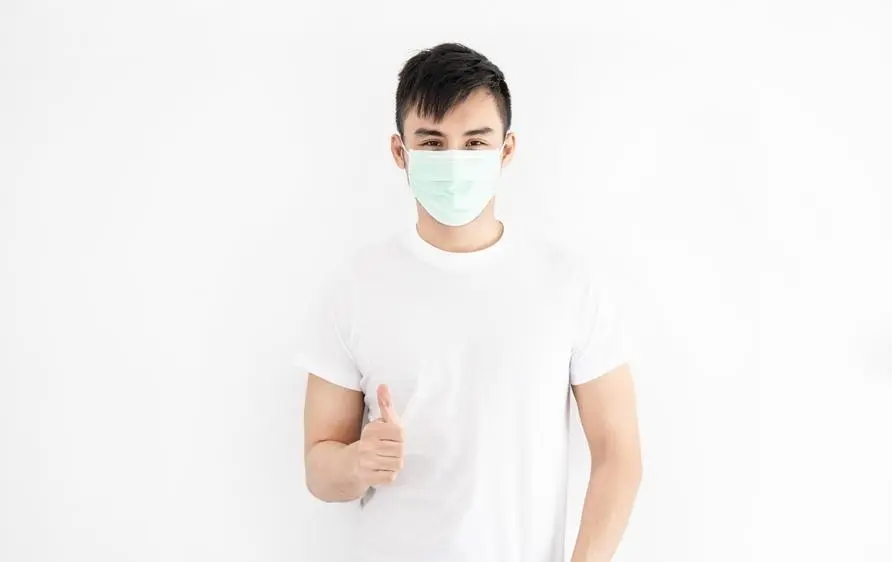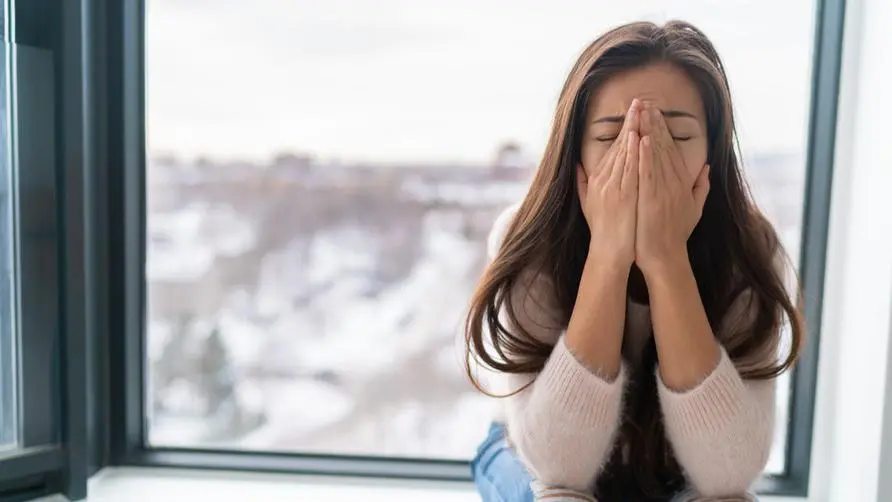Does it happen in autumn or winter? Oversleeping, overeating, and inexplicable crying may be signs of "seasonal depression"

At the turn of autumn and winter, do you always feel depressed, loss of appetite, or even drowsy for no reason? Be aware that Seasonal Depression (also known as Seasonal Affective Disorder Syndrome, SAD) may be coming to your doorstep. If the above symptoms do not improve, or even thoughts of despair or suicide occur, it is recommended to go to a psychiatric outpatient clinic immediately or receive psychological consultation to alleviate the symptoms.
What is “seasonal depression”? Is lack of sun exposure the main cause?
According to the National Institute of Mental Health (NIMH), there is no exact cause of seasonal depression, but it is generally believed to be related to the sharp decrease in daylight hours in autumn and winter. Sunlight can help regulate the body’s circadian rhythm and promote the body’s secretion of melatonin and the “happy hormone” serotonin. Lack of sunshine not only easily affects work and rest, but also causes a decrease in serotonin concentration and affects personal mood.
The National Institute of Mental Health further states that patients suffering from seasonal depression are prone to the following symptoms:
Feeling depressed most of the day.
Losing interest in hobbies that you once enjoyed.
Changes in appetite (mostly overeating).
Easily drowsy.
Rapid weight gain.
Social withdrawal.
Feeling inexplicably sentimental or tearful.
Feeling hopeless and worthless.
Difficulty concentrating.
Frequent thoughts of death or suicide.
The National Institute of Mental Health states that winter-type seasonal depression will gradually ease in March-April of the next year when spring flowers bloom. In addition, there are also certain groups of people who suffer from seasonal depression in the summer, with symptoms such as irritability, anxiety, insomnia, loss of appetite, etc. If patients are combined with specific diseases, such as chronic fatigue syndrome, hypothyroidism, hypoglycemia, viral diseases (such as influenza, new coronavirus), etc., the above symptoms may be aggravated.
How to treat seasonal depression? Is taking vitamin D useful?
What treatments are available for patients suffering from seasonal depression? According to the National Institute of Mental Health and the authoritative medical website “WebMD”, the following treatments are all effective in relieving seasonal depression:
Antidepressant drugs: such as Prozac or Crocus (SSRI drugs) that can increase serotonin. However, SSRI drugs may have side effects such as thirst, nausea, sleep problems, dizziness and headaches, and you must fully discuss them with your doctor before use.
Light therapy. Patients need to be exposed to strong light for about 30-45 minutes every day, and the brightness must be higher than 10,000 illuminance (lux). Light boxes are about 20 times brighter than regular indoor lights and can help filter out potentially damaging UV rays, making them a safe treatment for most people. However, patients with certain eye conditions, or taking certain medications that increase sensitivity to sunlight, may need to use alternative treatments.
It is recommended that patients undergoing phototherapy should not look directly at the light source of any light box for a long time to avoid damage to the eyes, and should stay at least 60 centimeters away from the light box. If you have skin sensitivity after receiving treatment, you should discuss with your doctor whether to reduce the exposure time.
Psychotherapy. A psychologist or psychiatrist will use “talk therapy” or “cognitive behavioral therapy” (CBT) to try to clarify the patient’s thoughts and help the patient learn how to cope with difficult situations.
Vitamin D supplementation. Many patients have significantly insufficient vitamin D concentrations in their bodies due to lack of sunlight. W Specific research supports that additional vitamin D supplementation can help relieve the mood of patients with depression; however, the use of vitamin D is still controversial, and it is recommended to discuss with your doctor whether additional supplementation is needed.
Can seasonal depression be prevented? Arrangements for travel and sunbathing are helpful
As for how to prevent seasonal depression? According to the National Institute of Mental Health and WebMD, the following methods can effectively relieve depression:
Exposure to sunlight. You can get more sunlight when the sun comes out in winter, and open all the objects in your home that can block sunlight, such as curtains and blinds. You can also go for a walk in the natural environment with your relatives and friends and get in touch with green plants, which will help you feel better.
Get more exercise. Previous research has shown that patients with depression have lower “neuroplasticity” than normal people; exercise behavior can enhance patients’ neuroplasticity, which can not only improve depression, but also bring positive changes to the brain.
Cultivate interest. Such as developing the habit of reading before going to bed and listening to soft music. Or socializing more with relatives and friends can help relieve your mood.
Arrange travel. Travel can help change the emotional experience and cognitive experience of the brain, improve cognitive function and memory, relieve tension and anxiety, and also help improve mood.
Change your diet. Ingesting foods that help secrete serotonin in the brain, such as eggs, milk, cheese, pineapples, bananas, beans, salmon, nuts and seeds, etc., have a positive effect on improving mood.
Finally, the National Institute of Mental Health reminds that because seasonal depression is unpredictable, it is recommended that people with related medical conditions pay more attention to their mood swings when autumn and winter alternate. If symptoms recur, be sure to discuss treatment options with the attending physician, which can help the patient return to normal life as soon as possible.
Source:
Seasonal Affective Disorder - NIMH
Further reading:





